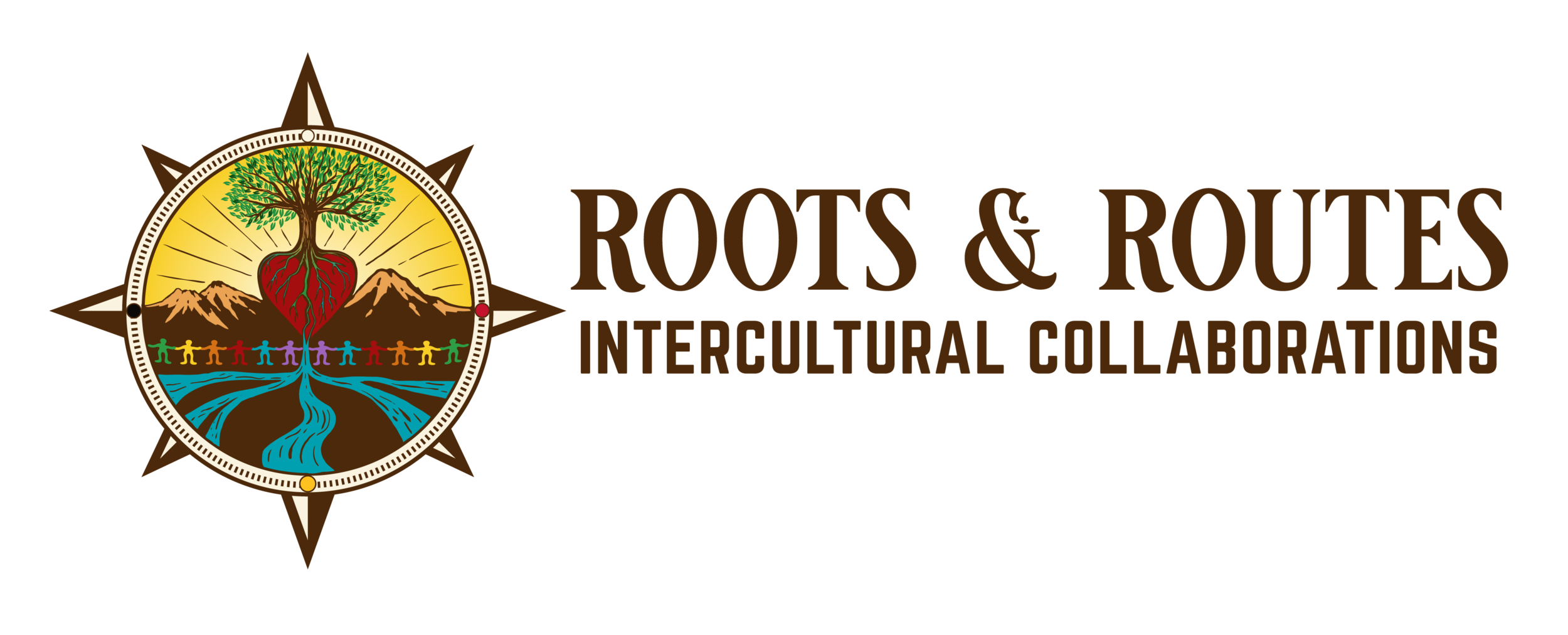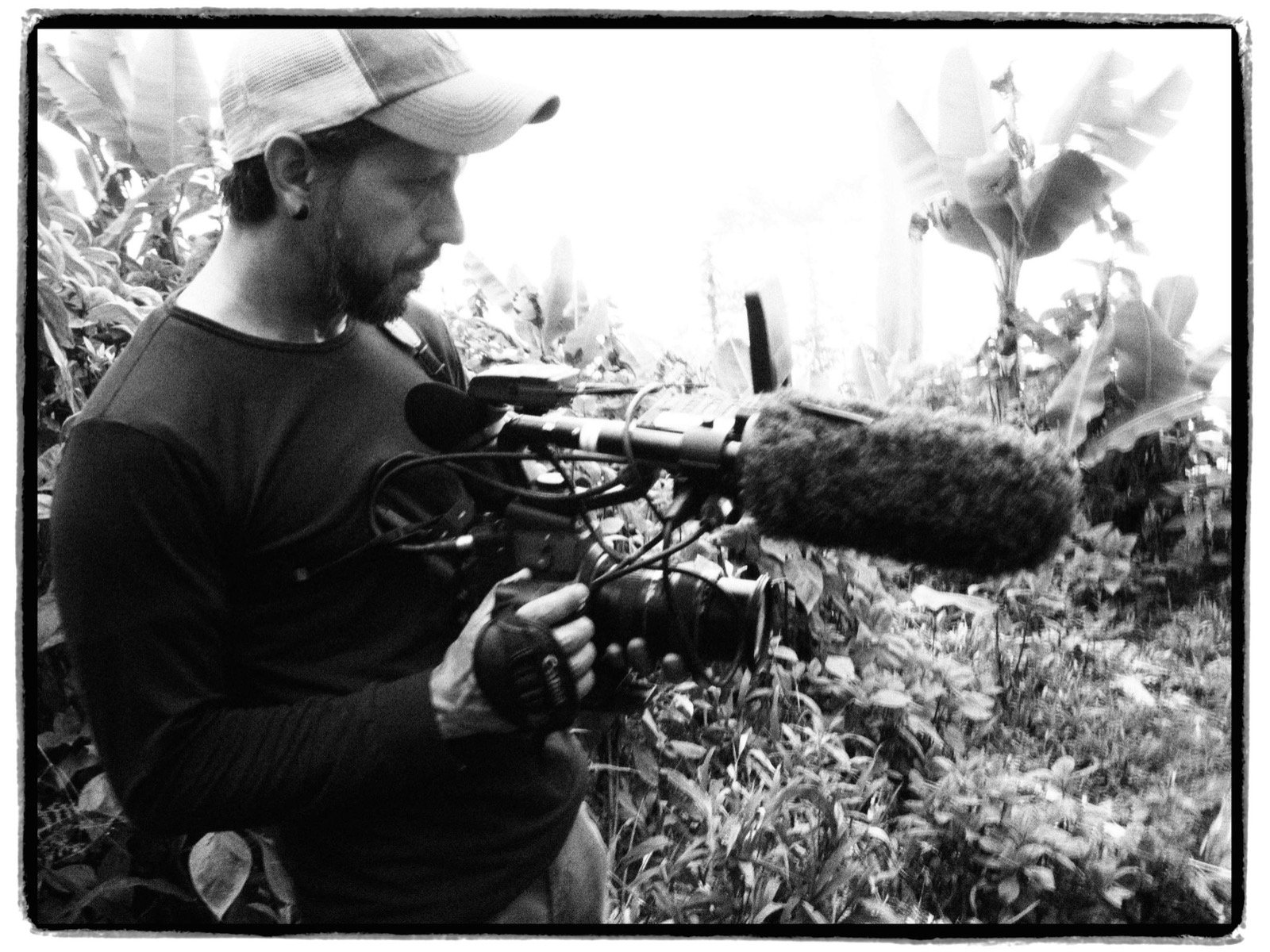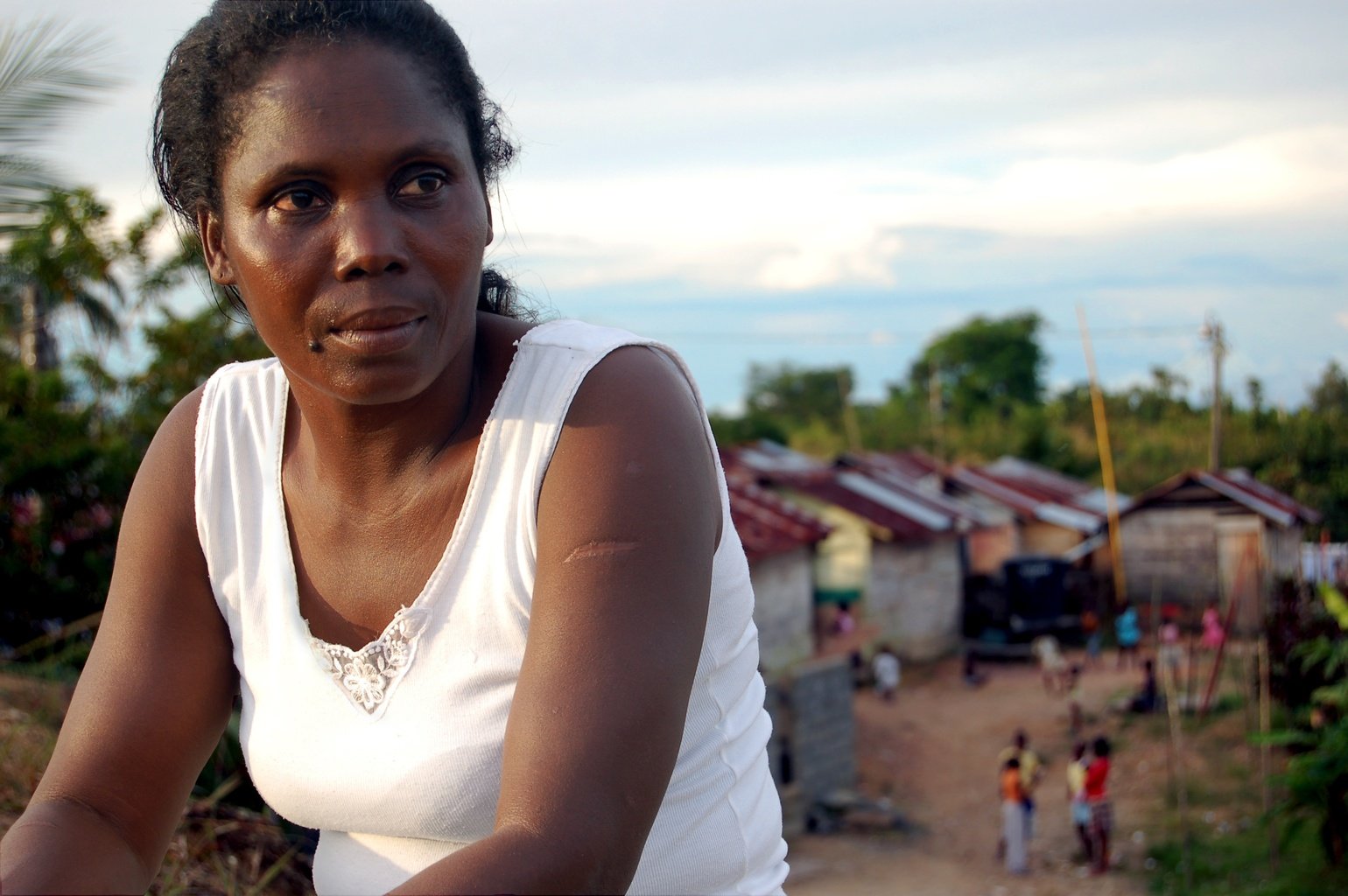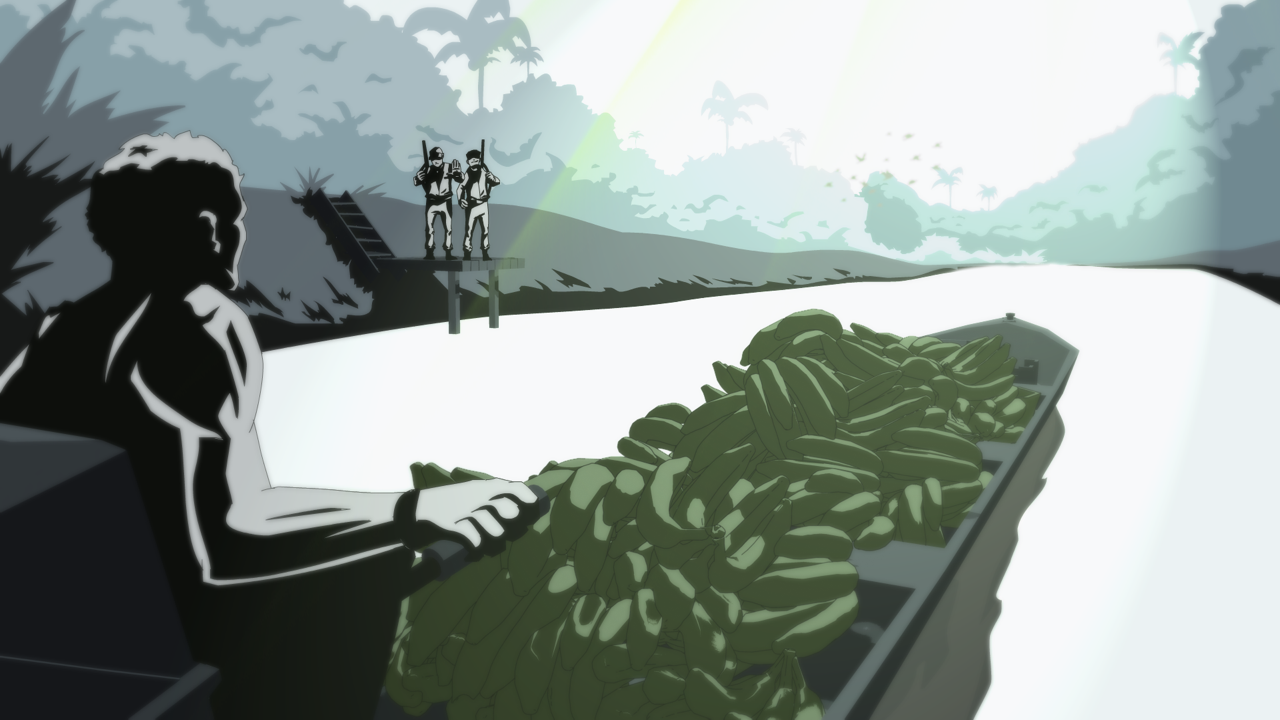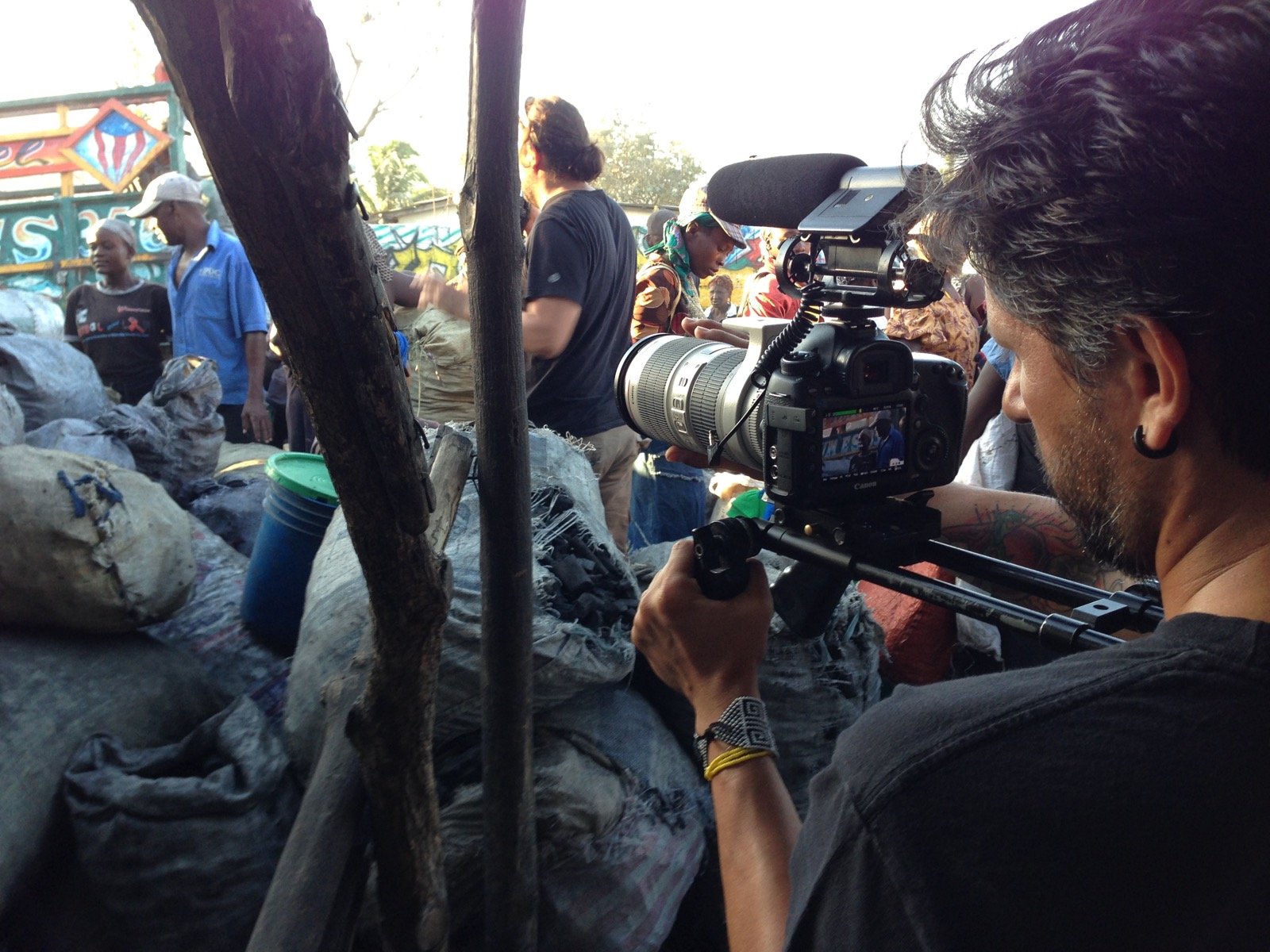Transformative Filmmaking for Social Change: Director Juan Mejia Features Nuanced Storytelling
“The objective is not objectivity, it’s not impartiality, it’s not neutrality, but it is complexity and nuance… if you can replace objectivity for complexity, I think it's really powerful. ” - Juan Meijan
Juan Mejia Botero features nuanced storytelling in his documentary films. Why? Experiencing emotions and complex perspectives are part of the beauty (and pain) of being human. We can all identify with a feeling of happiness that brings tears to our eyes and thoughts that are one thing one day and different tomorrow, right? We humans are complicated and sometimes even contradictory beings.
Juan Mejia Botero in the Chocó Rainforest in transformative filmmaking action. Courtesy of Juan Mejia.
Juan is an activist filmmaker from Bogotá, Colombia, currently living in New York City. When he came in to talk with the Roots & Routes’ Youth Visionary Collective, he taught us what he has learned through his last twenty years of transformative filmmaking for social change. His documentaries focus on struggles for dignity and justice across the Americas. A handful of his films lend to deeper understandings about the rich cultures of the communities of the Black Diaspora throughout the hemisphere. They also share about their resilience, for almost all of them continue to experience massive cultural or territorial disruptions, which mainstream media tends to underrepresent. Juan believes that storytelling through film contributes to fighting for systemic changes that lead to greater social justice and hope.
Juan believes that storytelling in media can contribute to the struggle for social justice and transformation. Transformative media is a form of mass communication that causes or can make significant and lasting change in someone or something.
In this same spirit, Juan co-founded Human Pictures (@humanpicturesfilms on Instagram), which is committed to highlighting the inequalities that marginalized groups face through film in order to challenge these injustices. Check out Juans latest film Igualada here, which tells the story of Francia Marquez, currently Colombia’s first Black and woman Vice President, who he has witnessed rise from a community activist to a national leader and global heroine.
About the film, Igualada:
Igualada comes from the word equal (igual)—it means someone who thinks of themself equal to those that see themselves above her… As unrest continues to boil over across Colombia, one determined woman has the courage to challenge an entrenched political establishment in the country’s biggest stage. Against all odds, Francia Márquez, a Black, rural community activist has launched a vice presidential campaign hoping her uncompromising appeal for justice can inspire a country to dream again (Human Pictures, 2022)
Igualada comes from a process of accompanying the Afro-Colombian movement. Juan shared with the YVC interns about the “content-neutral” dilemma of documentarians. The issue is what is more effective for social change? Does the filmmaker take a stance to move forward the struggles of the people? Or do they try to show what people often imagine as “two sides” of the story?
As a film student who was taught about the importance of “being objective” and featuring communities facing injustice in Colombia, Juan felt as if he was sacrificing journalistic integrity. However, through following the rich histories of Afro-Colombians, Juan discovered what he believes to be the purpose of documentaries: to storytell, rather than to relay facts and circumstances to at-home viewers.
Juan has also directed films such as his 2008, Uprooted (watch full film here) and his 2012, The Battle for Land (watch the trailer here) both of which focus on the struggles of Black communities in what is called el Pacífico, the Pacific Coast Rainforests of Colombia that form part of the Chocó Bioregion, South America’s other major rainforest.
Photo by Juan Mejia of Noris Mosquera in the refugee camp featured in Uprooted.
About Uprooted:
Uprooted explores the plight of Noris Mosquera, one of the more than 1 million Afrocolombians violently displaced since 1990. Her son dreams of leaving the refugee camp for a burgeoning soccer academy in the city of Bogotá, and Noris will do all she can to make his dream a reality. Through her plight, we delve into the tragedy of uprooting and discover the power of resilience. Uprooted is a beautifully detailed tale about struggle and resistance; a bittersweet story of loss, love, and dreams.
Both films are based in the context of the consequences of illegal armed groups displacing ancestral Black communities. Monoculture oil palm plantations stand as the graveyards of what once was their daily lives. Still living in refugee camps and makeshift housing, now their not-so-temporary homes, they have hope for returning home and a brighter future.
The Battle for Land interviews people, like the man who is from Río Mira in the photo below, who have undergone violent uprooting and displacement.
The film uses animation like the following to illustrate their memories.
Juan explained to the YVC that how he represents the situation matters because he wants people to share their stories in their own voice. As a documentary filmmaker and activist, Juan continually has to question his own motives to ensure he represents their stories in a way that keeps their integrity. Therefore, questioning himself and what he is doing is important to finding his place in the fight for social justice through his filmmaking.
In making these films, Juan was courageous enough to question his own privilege within the context of Colombian society. Juan, who is considered to be white in Colombian society and from an economically advantaged family, showed us some real vulnerability when he questioned if he should be making some of these films at all. There is, however, still a need for working with Black communities because they do not have access to the same resources, so he tries to go about making the films in the most collaborative ways possible. The communities themselves have also shown appreciation towards the documentaries that he directs. Regardless, as he talks about in the following video, Juan still holds doubts about being a white Colombian filmmaker featuring Black struggles:
The way that the scenarios are framed by filmmakers will have a huge influence on how the stories are both told and interpreted. It is through the filmmaker's own perspective that the viewers approach the topic being shown and discussed in a documentary. Thus, the idea of maintaining objectivity as a documentary filmmaker becomes unattainable. Juan believes that being unobjective in documentaries should not be seen as a bad thing, but rather celebrated and embraced by filmmakers as it cannot be avoided. When making so-called “serious” films, taking a neutral and objective stance is seen as making the film more valid and high-quality, and helps keep the filmmaker from getting too emotionally invested in the topic at hand.
The way that situations are framed by filmmakers and media can dramatically affect how it comes across to the viewer, making objectivity impossible to achieve.
Juan told the YVC that the aim for impartiality can create a distance between the filmmaker and the people with whom they are making the documentary ends up creating a barrier that gets in the way of true connection and love— key components of storytelling. Juan referred to delving into this kind of “mud” as necessary to the best kind of filmmaking.
“Get your hands dirty, past the first and second layer and into the mud where the nuance and complexity live”
Anti-colonial and anti-racist approaches insist on actual change by saying no to business-as-usual. If you are not questioning the system, you are part of the problem by, albeit inadvertently, acting in colonial and racist ways. Taking a strong social stance like Juan does might be seen as “politically extreme”, but what do you think? Isn’t making the choice to accompany people when they are on their own against economic giants necessary to create real systemic change? Both Juan and Roots & Routes coincide to respond a resounding yes to this question. To make real change in ourselves, society, and the world, we have to dig deep!
What we learned from our insightful talk with Juan was that there should not be any contradictions between active political commitment and artistic pursuit. Both politics and art are by definition subjective and to be full of heart, feelings, complexity, and emotion. This turns into the “hard stuff” that is a part of political commitment. Through his reflections about filmmaking, Juan showed us that treading into this mud byusing our voice and not shying away from questioning dominant approaches is worthwhile in our individual multi-media practices, whether it be our essays, research, reels, photography, and blogs.
In our conversation, Juan inspired the youth interns to delve into these questions:
What impact has the media had on you, and why? In this ever diversifying world, what do you think representation in media should look like? Are there times when collaboration of ‘outsiders’ are needed to amplify the voices of folks speaking for themselves?
We would like to offer these same questions for you to chew on.
